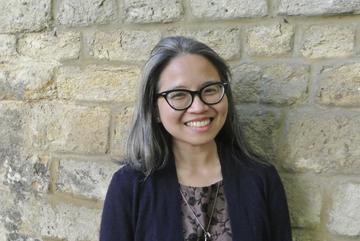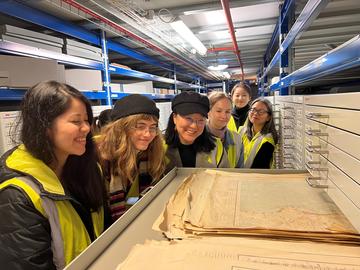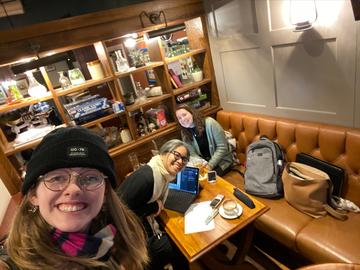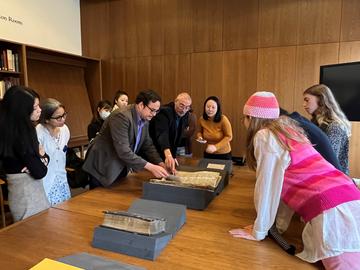Meet the alumni

My favourite part of the programme was having the opportunity to learn from so many insightful and truly gracious people―my classmates, our teachers, the librarians, IT experts, and administrative staff were all very generous with their ideas and support!
Coming from a not particularly tech-savvy background, I am grateful for how this programme welcomes even students who are just at the start of their journey into digital concepts and methods. Our technical options papers as well as the countless seminars and workshops on digital skills (e.g. photogrammetry, text encoding) offered by different parts of the university definitely eased my entry into digital scholarship.
Technological advancements are only the beginning of the conversation though! I loved that the weekly seminar for the whole cohort explores epistemology, project management, ethics, the limits of present technology, and how digital practices can be employed thoughtfully. There is also a wealth of lectures and cultural offerings available in Oxford to help one keep a foot in one's home discipline. In my case, I enjoyed different talks in medieval studies, theology, manuscript studies, and arts and letters. It is truly a gift to be in a programme that draws together humanistic, technical, and experiential learning opportunities within a vibrant city.
Carmen Denia
My favourite aspect of the program was the people, from my cohort to my professors to the guest lecturers. Everyone is from such different backgrounds, but share an interest in and are passionate about some form of digital scholarship, and having these conversations was a wonderful opportunity.

It was truly amazing being at Oxford and having access to the many resources that the university has to offer, and to study a field that is so cutting-edge and unique. I was able to interact with people doing really interesting research in all areas, and had experiences that I'll never forget.
Paper 1 was a really informative way to learn the basic elements and best practices of digital scholarship. Being able to hear from weekly guest speakers from all different disciplines was an amazing opportunity, and showed me just how exciting and creative digital scholarship can be.

I took IIIF (International Image Interoperability Framework) for my tech course, and gained hands-on experience with annotating archives and creating my very own manifest. I had complete freedom in choosing what I wanted to work on, and a lot of support in learning technology that was completely new to me, and is still growing and changing.
As a book nerd, the Bodleian fieldtrips were truly incredible, and a nice way to complement the digital aspects of the degree. It's hard to conceptualize just how much knowledge is contained in the Bodleian and how unique the works are until you're standing in the book storage facility (surrounded by 14 million books in towering stacks above you!) or paging through an ancient manuscript.
The career mentor system was a really excellent way for me to see all the different pathways that digital scholarship can be applied to. I was able to ask any questions I wanted and learn from someone who has had a lot of experience, both in academic and professional capacities. This has been an invaluable resource, especially as I'm not too sure where I'd like to end up! Anna Mason
My favourite aspect of the programme was meeting the incredible academics in charge of Digital Humanities projects across Oxford. Every Tuesday we had these speakers present their research to us which is always eye opening and interesting to hear about.

The degree as a whole was exactly how I thought it would be after reading the course description. The work-load is manageable and the classes are always intriguing. I feel like, overall, I've learnt a lot of new skills and developed my scholarly aptitude. Each week is formed around a good routine but also sufficiently different, new and exciting in subject matter.
Paper 1 is the perfect introduction to digital scholarship and humanities for someone who does not yet understand the history and theories behind the field. The reading is interesting and the weekly speakers are extremely informative.
IIIF is a great technical course which traverses the history of linked-data, computing-theories behind interfaces and image display and eventually teaches you how to use IIIF as a scholarly tool. It was incredible to learn from Neil Jefferies and each lesson was extremely fulfilling. I would wholeheartedly recommend this course to anyone interested in transcription, image display, archival tools and the possibilities of digital annotation.

The fieldtrips with the Bodleian were so exciting! Even though I had previous experience with the Bodleian, the trips allow you to explore areas of the library which you would never usually know how they functioned- let alone be able to see them in person!
This insight is immeasurable to anyone interested in libraries, archives and the digital development within these sectors.
Elena Trowsdale


